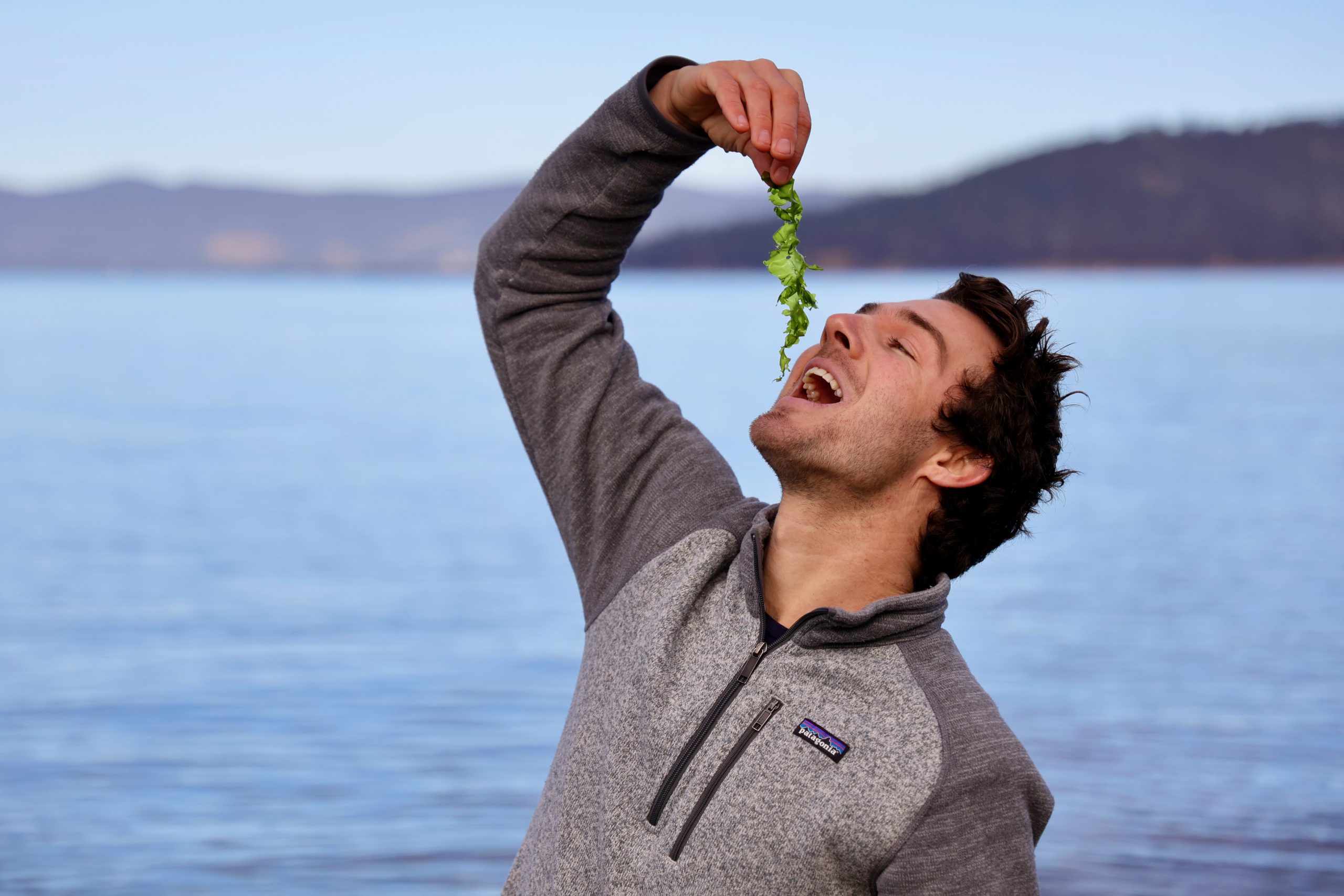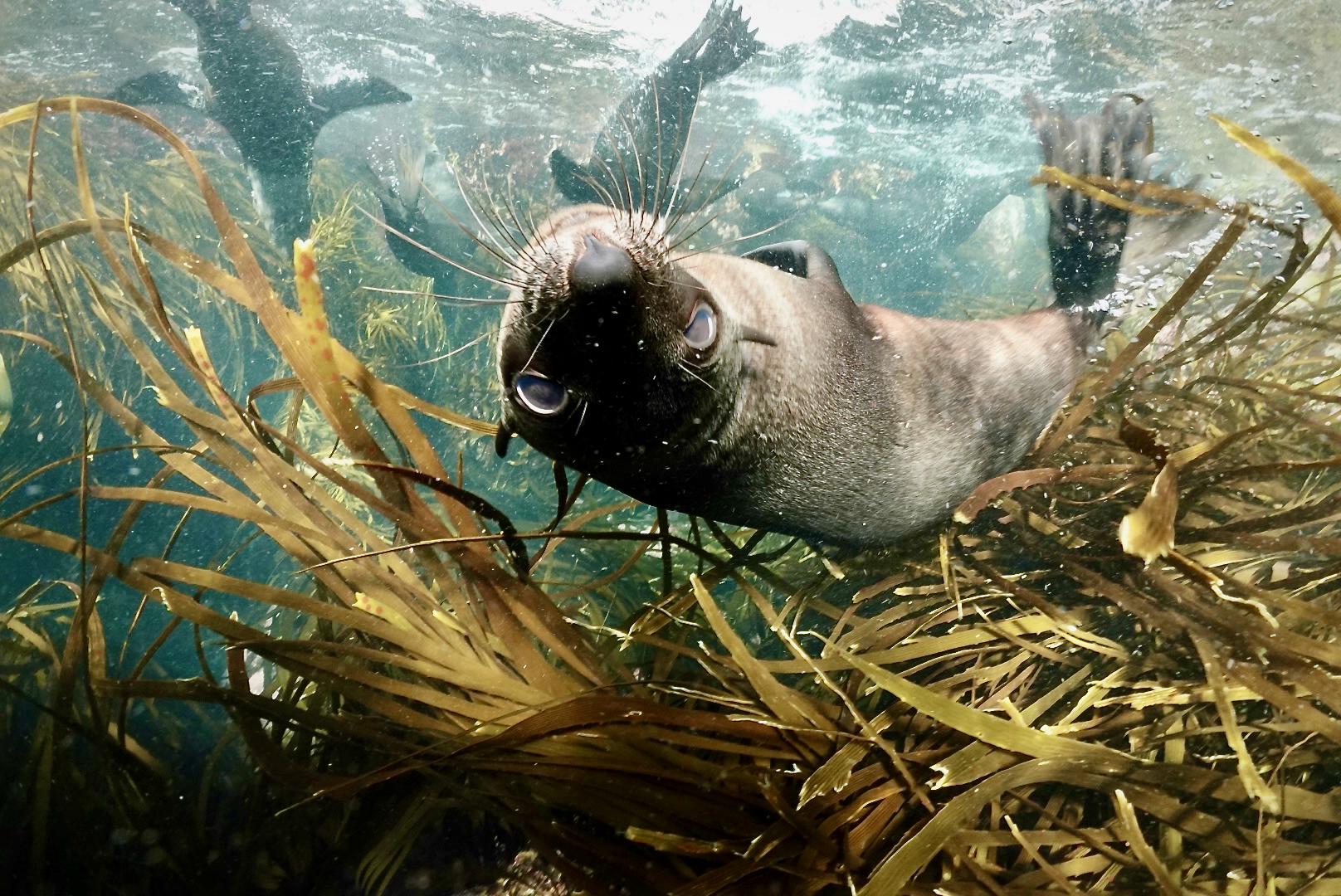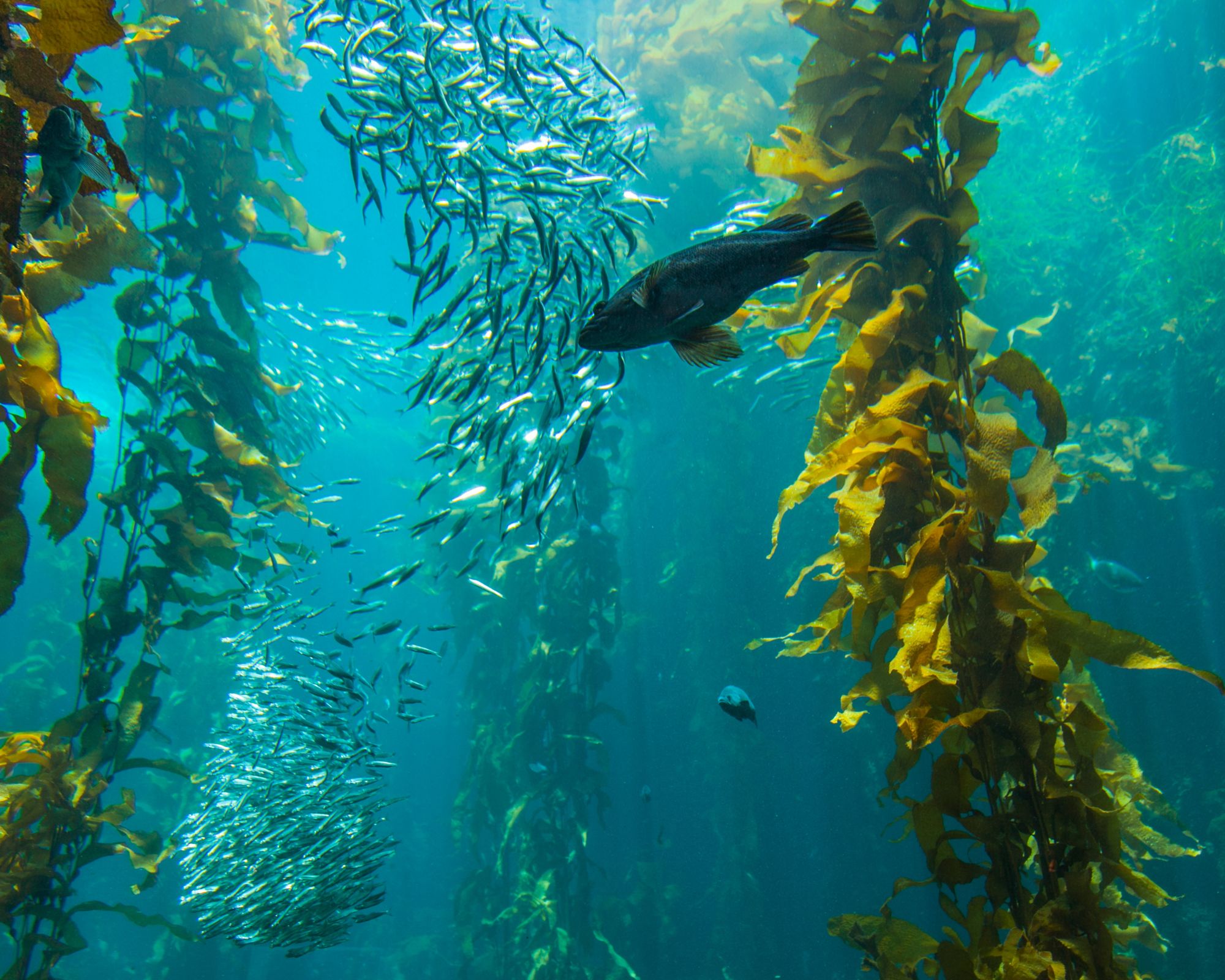Integrated Multi-Trophic Aquaculture
Promoting Economic and Environmental Sustainability Through Co-location of Seaweed and Finfish & Shellfish Farms
At Next Wave Seaweed, we’re exploring the full potential of Integrated Multi-Trophic Aquaculture (IMTA), a sustainable ocean farming approach that cultivates complementary species such as seaweed, abalone, oysters, mussels, and finfish together. Thoughtfully designed IMTA systems can restore ecosystems, improve productivity, and strengthen food system resilience.
Offshore finfish aquaculture faces growing regulatory and community scrutiny for its perceived environmental impacts, particularly the nitrogen and phosphorus wastes associated with concentrated fish farming.
Co-located seaweed farming, when sited and managed responsibly, has the potential to reduce nitrogen and phosphorus loading into coastal waters. Seaweed polyculture can also help mitigate the impacts and risks of heavy metal pollution on fish stock.
Next Wave Seaweed empowers aquaculture operators to meet their growth, risk management, and reputational objectives by designing, operating, and assuring co-located seaweed operations that improve water quality and remove unwanted fish farm by-products. We look after all aspects of seaweed production, allowing our partners to focus on finfish cultivation.
The Economic Benefits to Integrated Multi-Trophic Aquaculture (IMTA) Partners Are Vast:
- An increased assimilative capacity of the fish farm environment supports regulatory compliance
- PR & advertising opportunities to certify sustainable processes
- Enables increased stocking density
- Lessens the impact of extreme weather on the farm through wave attenuation
- Absorbs heavy metals that pose risks to aquaculture stocks
- Reduces pen cleaning efforts
- Stimulates financial growth
We Specialise in the Seamless Development and Delivery of Impactful Seaweed Projects from Inception to Realisation.
Next Wave Seaweed provides location-dependent project evaluation, project management and hands-on project delivery to allow our partners to leverage the power of seaweed to restore marine environments, sequester carbon, use biomass grown for plastic alternatives and other seaweed-based products and assist aquaculture companies in meeting global protein requirements.



